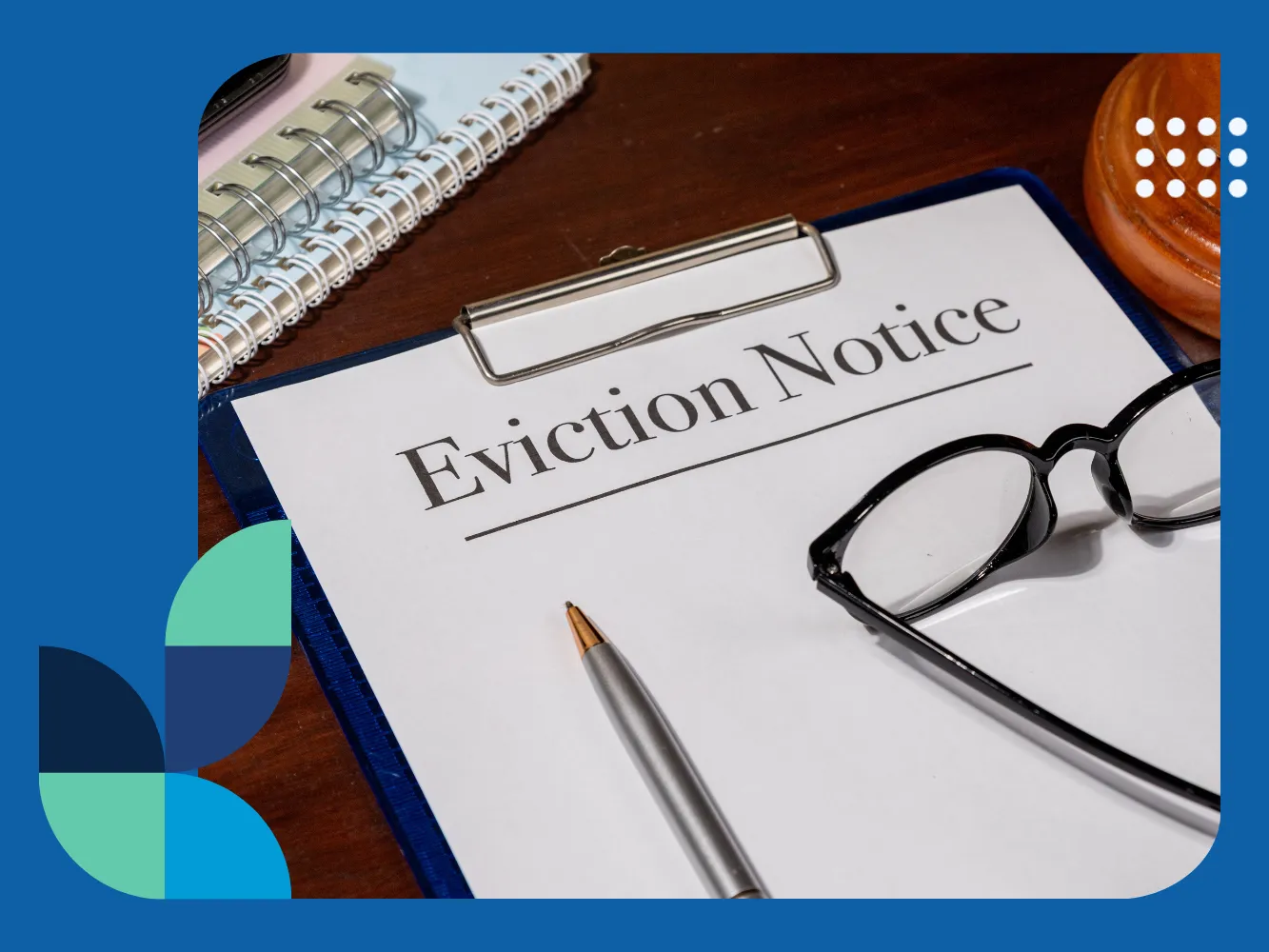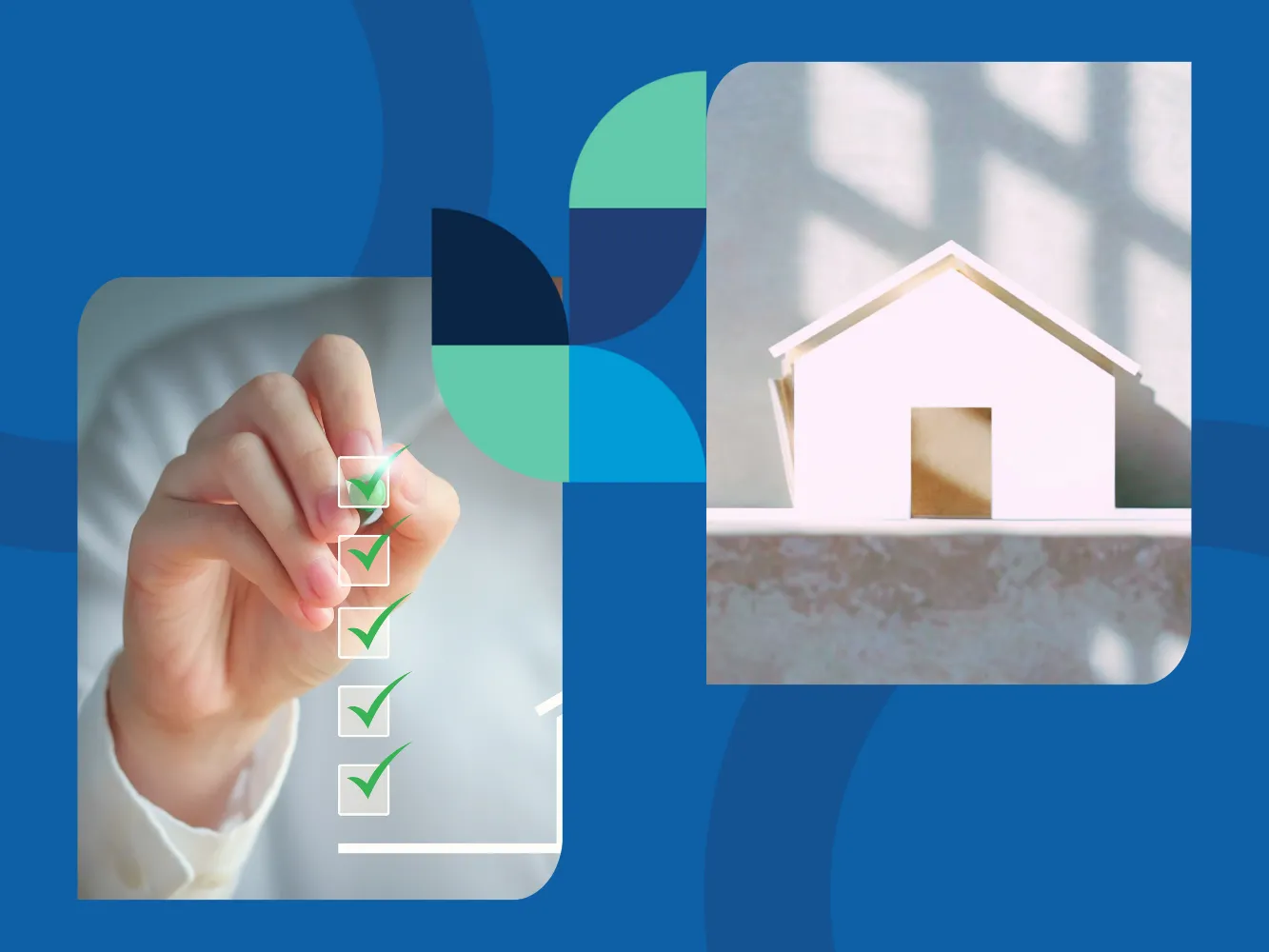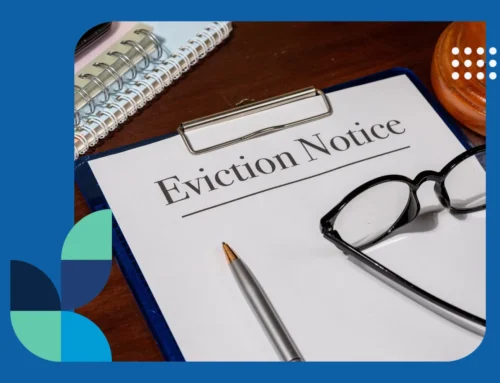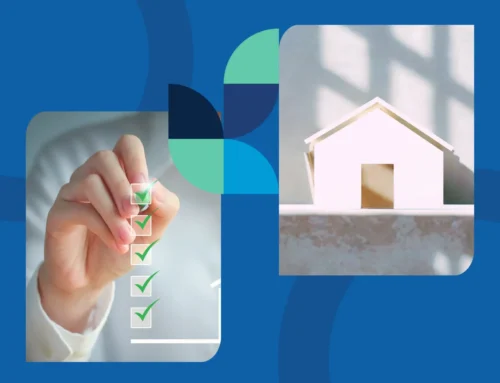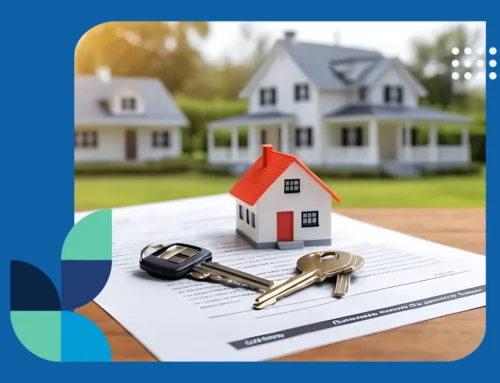It’s important to know how to deal with difficult tenants. Even if you do your very best to avoid bad residents, there’s always the chance that one of your current residents will start becoming unreasonable.
In such situations, you need to be prepared for what comes next.
In this article, we’ll cover how you can identify troublesome residents, what kinds of issues they may cause, the steps you can take to remedy the situation, how to report bad tenants in case the situation becomes more serious, and how to protect yourself from bad tenants no matter how drastic it has become.
What Makes a Bad Tenant
Finding the right residents can make or break a property management experience. While the majority of renters are respectful and reliable, a few bad apples can cause significant headaches. Here are some key signs of a bad tenant that you should watch out for:
- Consistently Late Payments: A resident who habitually pays rent late disrupts cash flow and increases administrative burdens. Chronic late payments can signal financial instability or a lack of respect for the lease agreement.
- Property Damage: Residents who neglect the property or cause significant damage not only lead to costly repairs but also reduce the property’s overall value. Signs of excessive wear and tear, unauthorized modifications, or failure to report maintenance issues are red flags.
- Violating Lease Terms: A resident who frequently breaks the rules of their lease agreement, such as having unauthorized pets, subletting without permission, or exceeding occupancy limits, or smoking on the premises, shows a disregard for the landlord’s terms and can lead to legal complications.
- Poor Communication: Residents who are difficult to reach or unresponsive can make it challenging to address issues promptly. Good communication is essential for resolving maintenance problems, discussing lease renewals, and ensuring overall smooth management.
- Disruptive Behavior: A resident who disturbs neighbors with loud noise, parties, or other disruptive activities can create a hostile living environment. This not only affects other residents but can also tarnish the property’s reputation.
- Constant Complaints: Dealing with demanding tenants can be exhausting. While it’s important to address legitimate concerns, having a tenant constantly complaining about minor issues or creating unnecessary conflicts can drain your time and resources. Balancing empathy with firmness is key in these situations.
The first signs of a bad resident often appear during initial conversations. They might seem unruly or make excuses for not complying with requests for information, or may ask about why certain rules are in the lease or how flexible you may be with late fees or eviction charges. They may also try to negotiate the rent amount and other fees, which could be a potential sign of difficulties in fulfilling their financial obligations in the future.
Landlords in a rush to fill vacancies may overlook these red flags, but doing so can lead to bigger problems down the line. Be proactive and ask follow-up questions to gauge if the prospective resident is reasonable and trustworthy.
How to Deal With Difficult Tenants
Most difficult residents cause issues with property damage or timely payments, but there’s more that you might have to deal with. Here’s a detailed explanation of what problems you can run into and what their solutions are:
Late or No Rent Payment
This is a common issue that can significantly impact a landlord’s financial stability. When residents fail to pay rent on time, it disrupts the property’s cash flow, making it difficult to cover expenses such as mortgage payments, maintenance costs, and other operational expenses.
Chronic late payments can also indicate a resident’s financial instability or a lack of respect for the lease agreement.
It’s important to distinguish between occasional late payments and consistent delays. An occasional late payment, particularly if the resident communicates and pays soon after, might not be a significant issue. However, consistent lateness or complete non-payment is problematic and requires intervention.
Here’s what you can do if your resident isn’t paying properly:
- Set Clear Expectations: Ensure that the lease agreement clearly states the due date for rent and any late fees that will be incurred for delayed payments.
- Communicate Early: If a resident is late, reach out immediately to understand the reason and remind them of their obligations.
- Enforce Late Fees: Apply late fees as specified in the lease agreement to encourage timely payments.
- Offer Payment Plans: If the resident is facing temporary financial hardship, consider offering a structured payment plan to help them catch up.
- Serve a Notice: If late payments persist, serve a formal notice as required by local laws, indicating the potential for eviction if the situation is not resolved.
- Legal Action: As a last resort, pursue eviction proceedings to regain possession of the property and seek back rent through legal means.
Illegal Subletting
Illegal subletting occurs when a resident rents out the property, or a part of it, to another person without the landlord’s permission. This can lead to several problems, including increased wear and tear on the property, potential damage, and even legal issues if the sublet resident causes harm and local ordinance and code violation issues.
As a landlord, it’s your choice whether to allow subletting on your property. Clear lease terms can help manage these decisions and prevent unauthorized actions. Let’s overview a couple of strategies for dealing with illegal subletting:
- Set Clear Policies: Clearly state your rules regarding subletting in the lease agreement. Specify any consequences for violating these terms.
- Regular Inspections: Conduct regular inspections to ensure compliance with the lease. This can help you identify unauthorized subletting early on.
- Communicate Expectations: Remind residents of the rules periodically, especially if you suspect they might be subletting.
- Address Violations Promptly: If you discover illegal subletting, address the issue immediately. Send a written notice outlining the violation and required corrective actions.
- Amend Lease Terms: If the resident wishes to sublet legally, consider amending the lease terms to include these provisions, ensuring both parties agree to the new conditions.
Disrupting the Neighbors
Disrupting the neighbors is a significant issue that can harm the overall atmosphere of a property and lead to complaints from other residents or even neighbors in the vicinity.
This disruption can take many forms, including loud music, parties, arguing, or other behaviors that create excessive noise and disturb the peace.
Such actions not only affect the quality of life for others but can also damage the property’s reputation and lead to resident turnover.
It’s crucial to distinguish between occasional noise, which might be acceptable within reasonable limits, and chronic disruptive behavior that violates lease terms and community standards.
Here is how you can handle residents who routinely disrupt the neighbors:
- Include Noise Policies in Lease: Clearly outline acceptable noise levels and quiet hours in the lease agreement. Specify the consequences for violations.
- Document Complaints: Keep a log of all complaints received from neighbors or other residents. Document dates, times, and descriptions of the disruptive behavior.
- Issue Written Warnings: When a complaint is validated, issue a formal written warning to the resident. Include details of the complaint and reference the relevant lease terms.
- Mediation: If the disruptive behavior continues, consider arranging a mediation session with the resident to discuss the issues and find a mutually agreeable solution.
- Lease Termination: If all else fails, and the disruptive behavior persists, begin the process of lease termination as per the lease agreement and local laws. This might involve giving a specific notice period and following legal procedures for eviction.
Property Damage
Property damage caused by residents can be a significant issue for you. This includes major damage like broken fixtures, holes in walls, damage caused by smoking inside, or significant neglect that leads to costly repairs.
While some wear and tear is expected over time, excessive or intentional damage goes beyond normal usage and can greatly reduce the property’s value (not to mention the excessive repair costs that can pile up because of it).
It’s important to distinguish between normal wear and tear, which might include small scuffs on walls or minor carpet wear, and severe damage that requires immediate attention and significant repair costs.
Here is what you can do in case your property is being damaged:
- Detailed Inspections: Conduct thorough move-in and move-out inspections with a detailed checklist. Document the property’s condition with photos and written descriptions.
- Require a Security Deposit: Collect a security deposit that can be used to cover the cost of any damage beyond normal wear and tear. Make sure you check with state and local laws on handling security deposits as most states have banking and escrow requirements.
- Regular Maintenance Checks: Schedule regular maintenance checks during the lease term to identify and address issues early. This helps prevent minor problems from escalating.
- Prompt Repairs: Address any damage as soon as it is reported or discovered. Quick action can prevent further deterioration and additional costs.
- Charge for Repairs: If damage is identified that exceeds normal wear and tear, charge the resident for the cost of repairs. Provide itemized invoices to justify the charges.
- Resident Education: Educate residents about proper property care and maintenance responsibilities. Provide guidelines on how to avoid common causes of damage.
- Eviction for Severe Cases: In extreme cases of negligence or intentional damage, consider eviction proceedings. Ensure all actions comply with local laws and lease terms.
Illegal Use of the Property
Illegal use of your property is a serious issue. This happens when residents engage in activities that violate the law or local regulations.
For instance, a resident might convert a rental unit into a marijuana grow house or use it as a base for illegal online gambling.
These situations can lead to hefty fines, property damage, and significant legal trouble for both the resident and landlord.
It’s important to differentiate between unconventional but legal activities, like running a home office, and explicitly illegal ones. Clear rules and vigilant monitoring can help prevent these issues.
Here’s what you should do in case your residents are involved in illegal activities on your property:
- Conduct Regular Inspections: Regularly inspect the property to ensure it’s being used appropriately and to catch any potential issues early.
- Watch for Warning Signs: Be alert to unusual traffic, strange smells, or unauthorized changes to the property—these can be indicators of illegal activity.
- Document Evidence: Collect as much evidence as possible, such as photos, police reports, and written complaints from neighbors.
- Act Quickly: If you suspect illegal activities, contact local authorities immediately to investigate and address the situation.
- Issue a Formal Warning: If illegal activity is confirmed, send a formal notice to the resident to cease immediately, citing the specific lease terms they’ve violated.
- Begin Eviction Process if Necessary: If the resident doesn’t comply or if the activity is severe, start eviction proceedings in accordance with local laws and regulations.
- Cooperate with Law Enforcement: Work closely with law enforcement to resolve the issue and protect your property.
Also, keep in mind that even though the resident might be breaking the law, you have to evict them through proper channels (which are explained later in this article).
Not Maintaining the Property
Proper maintenance of the property is a shared responsibility between landlords and residents.
While landlords are generally responsible for major repairs and ensuring the property is habitable, residents are expected to take care of day-to-day upkeep and minor maintenance tasks.
| It’s important to note that as long as the lease complies with the local law, the lease agreement is the deciding factor of whether you or your residents handle certain maintenance responsibilities. You should specify them to avoid any confusion later on. |
Residents’ responsibilities typically include:
- Routine Cleaning: Keeping the property clean and sanitary, including regular dusting, vacuuming, and cleaning of appliances, and pest control for household bugs like ants and spiders.
- Minor Repairs & Updates: Handling minor fixes like changing light bulbs, unclogging drains, and replacing batteries in smoke detectors.
- Reporting Issues Promptly: Informing the landlord immediately about any major issues or necessary repairs, such as leaks, electrical problems, or appliance malfunctions.
- Preventing Damage: Taking reasonable steps to prevent damage, such as using cutting boards to avoid countertop scratches and avoiding overloading electrical outlets.
Landlords, on the other hand, are typically responsible for:
- Structural Repairs: Fixing major structural issues, including roof leaks, broken windows, and foundation problems.
- Major Appliances: Repairing or replacing major appliances provided with the rental, such as refrigerators, stoves, and water heaters.
- Safety Features: Ensuring all safety features, such as smoke detectors, carbon monoxide detectors, and fire extinguishers, are in working order.
- Utilities and Infrastructure: Addressing issues with plumbing, electrical systems, and HVAC systems.
- Yard Maintenance (optional): Although generally yard maintenance is the responsibility of the resident, owners may maintain responsibility for maintaining the yard (such as mowing the lawn, raking leaves, and weeding) and including it in the rental amount, per the lease agreement.
- Pest Control: Rodents and other wildlife pests.
How to Deal with Lack of Maintenance
- Provide Maintenance Guidelines: Give residents a detailed list of maintenance tasks they are responsible for, along with tips on how to perform these tasks.
- Communicate Regularly: Maintain open lines of communication with residents, encouraging them to report maintenance issues promptly.
- Issue Warnings for Neglect: If a resident is not maintaining the property as agreed, issue a formal warning. Specify the neglected areas and the actions required to correct the situation.
- Offer Professional Services: Provide access to professional cleaning or maintenance services, and pest control services at the resident’s expense if they are unable to perform certain tasks.
How to Evict Bad Tenants
Evicting a bad resident can be challenging, but following these steps can make the process smoother and legally compliant.
- Document the Reason for Eviction: You need to document exactly why you’re evicting the resident. The most common reason is non-payment of rent, but any violations of your lease agreement count.
- Review Local Laws and Lease Agreement: Make sure you understand state and local eviction laws. Check the lease agreement to confirm the resident has violated specific terms.
- Serve a Formal Notice: Provide the resident with a written notice specifying the reason for eviction and any opportunity to remedy the situation:
- Pay or Quit Notice: For non-payment of rent.
- Cure or Quit Notice: For lease violations.
- Unconditional Quit Notice: For severe issues like illegal activities.
Before you go beyond this point, keep in mind that a contested eviction process can cost around $4000 to $7000 on average. That’s not to mention the amount of time that you’ll waste on this process—evictions can take several months to occur.
You could, instead pay your resident to leave your home in what’s called a Cash for Keys arrangement. It covers the cost of moving and incentivizes the resident to leave your property.
Even though it’s frustrating to pay someone who is already causing you so much undue trouble, it’s still cheaper than going through a full-fledged eviction process.
| Some property management companies offer eviction protection which can shield you against the (partial) loss of rent or eviction proceeding costs). |
In case the resident refuses the Cash for Keys arrangement, you’ll have to continue with these steps:
- File for Eviction: If the resident does not comply with the notice, file for eviction with your local housing court. Include all necessary documentation, such as the lease agreement and copies of notices served.
- Attend the Court Hearing: Present your case, including all evidence of the resident’s violations. Be prepared for the resident’s defense.
- Obtain a Writ of Possession: If the court rules in your favor, you will receive a writ of possession. This document authorizes law enforcement to remove the resident if they do not leave voluntarily.
- Enforce the Eviction
- Coordinate with Law Enforcement: Ensure the eviction is conducted legally and safely.
- Change the Locks: Immediately change the locks to prevent re-entry.
- Handle Resident’s Belongings: Follow legal requirements for storing or disposing of the resident’s belongings as necessary.
- Address Property Damage: Inspect the property, document any damage, and use the security deposit for repairs. Seek additional compensation if needed.
- Prevent Future Issues:
- Strengthen your resident screening process.
- Ensure lease agreements clearly outline responsibilities and consequences.
How to Avoid Bad Tenants
Instead of thinking about how to deal with difficult tenants, it’s much easier to avoid them from the get-go. That means having a process that drastically reduces the chances of you ending up with a resident who will cause you trouble down the line.
Here’s a quick rundown of what you can do to avoid such residents:
Talk to the Resident Directly
Meeting potential residents in person or through a virtual interview is necessary to make that happen.
This interaction helps you gauge their reliability and fit for your property. During the interview, ask about their rental history, reasons for moving, and ensure they understand the lease terms.
You can identify unreasonable residents simply by their responses to simple questions like:
- Have you ever been convicted of a crime?
- Have you ever filed suit against a landlord?
- Do you have a water bed, an aquarium, or any other water-filled furniture?
- Are you a smoker?
- Have you had two or more late payments in the past year?
- Have you given proper notice to your current landlord?
- Have you been in your current field of employment for more than 36 months? If not, how long have you been in your current field of employment?
- Were you referred by a friend? If so, please let us know who. If not, please let us know how you heard about us.
- What is your intended duration of stay at the premises, if approved?
- Have you viewed the property for which you are applying?
Apply Rigorous Resident Screening
Avoiding bad residents starts with a solid resident screening process. First, run thorough background checks, including criminal history, credit reports, and rental history.
We recommend using these services to speed up your resident screening.
Also, you must contact previous landlords to learn about the resident’s behavior and reliability. Verify their employment to ensure they have a stable income and can afford the rent.
It’s not enough to just ask for their numbers, you have to follow up and call them. This is especially important because previous Cash for Keys arrangements usually don’t show up in records. If applicable, you can chek the property tax records to confirm that the name on the title matches the landlord name provided.
You won’t know if the person you’re considering has caused issues for their previous landlord unless you ask them.
Advertise Properly
Effective advertising also plays a role. Use reputable rental websites and provide detailed listings with high-quality photos and clear terms to attract serious inquiries.
Use a standardized rental application form to collect necessary information consistently, and consider charging an application fee to cover the cost of background checks.
Be Patient
It’s better to wait for a resident who will be a long-term asset rather than rush the process and onboard someone who will cost you thousands in losses in the long run.
In Conclusion
Dealing with difficult residents is an inevitable part of being a landlord, but it doesn’t have to be overwhelming.
By identifying the common traits of bad residents and understanding how to handle issues such as late payments, illegal subletting, disruptive behavior, property damage, and illegal use of the property, you can protect your investment and maintain a positive living environment for all your residents.
Remember, the key to preventing problems lies in thorough resident screening and clear communication from the start. Set clear expectations in your lease agreements, conduct regular property inspections, and address issues promptly and professionally.
In doing so, you’ll not only minimize the chances of encountering bad residents but also foster a community of responsible and respectful renters.
Ultimately, taking proactive steps and maintaining a firm yet fair approach will help you manage your properties effectively, ensuring a smoother, more profitable experience for both you and your residents.


